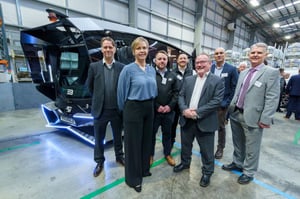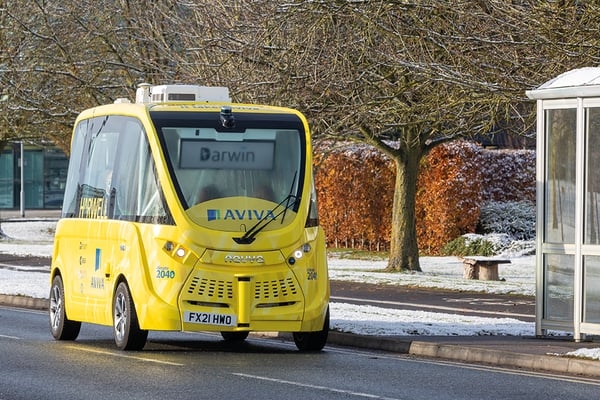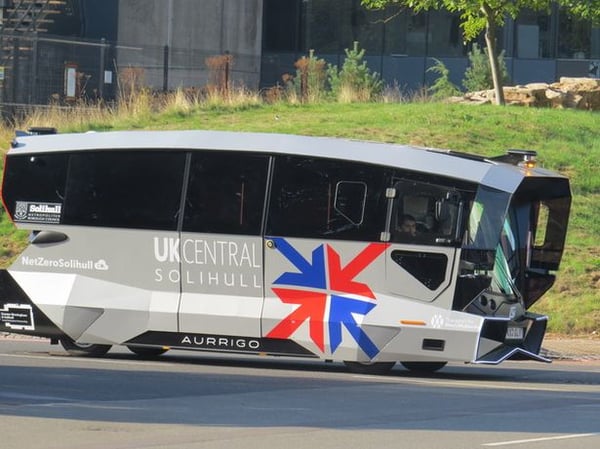City of Sunderland Council has been awarded £6 million in joint government and industry funding to build and trial a self-driving shuttle service.
The Sunderland Advanced Mobility Shuttle (SAMS) project will develop three self-driving zero emission Aurrigo Auto-Shuttles, which will transport passengers between Sunderland Interchange, the Sunderland Royal Hospital, and the University of Sunderland City Campus.
 “Leveraging the power of 5G technology and Sunderland’s leading smart city infrastructure, the focus of our ambitious project partners is underpinned by an ethos of leaving no one and nowhere behind,” said Liz St Louis, Director of Smart Cities at Sunderland City Council (pictured second from left).
“Leveraging the power of 5G technology and Sunderland’s leading smart city infrastructure, the focus of our ambitious project partners is underpinned by an ethos of leaving no one and nowhere behind,” said Liz St Louis, Director of Smart Cities at Sunderland City Council (pictured second from left).
SAMS is led by Sunderland City Council in partnership with Aurrigo, Stagecoach, ANGOKA Ltd, Newcastle University, Swansea University, and BAI Communications.
It is one of seven successful self-driving projects across the UK to receive a share of £84 million in joint government and industry support. The grants - part of the Centre for Connected and Autonomous Vehicles Connected and Automated Mobility programme - are designed to help propel budding UK autonomous vehicle projects towards commercial deployment, while demonstrating the capabilities of a sustainable automated public transport service.
While a safety driver will remain onboard, the new shuttle service will demonstrate the potential of cyber-secure self-driving vehicles - a crucial step towards commercial deployment.
The shuttle service, which is battery powered, means passengers can be transported while emitting zero carbon emissions; illustrating the potential for a greener, more sustainable transport service. If rolled out more widely, this could play an important role in helping the UK reach its net-zero targets.
Sunderland’s self-driving shuttle service will begin development in March, with the aim to launch a sustainable commercial service in 2024.
“Connected and Automated Vehicles will provide huge social, industrial and economic benefits across the world and we’re hugely optimistic about a technology-fuelled future, powered by local expertise, right here in Sunderland,” added Sunderland's St Louis.
Self-driving vehicles hold the power to significantly transform public transport and passenger travel, especially for those who do not or cannot drive. They also have the potential to connect rural communities and reduce road collisions caused by human error.
To further support and shape the development of autonomous driving, the government is preparing to introduce legislation that will require self-driving vehicles to meet certain standards in order to operate on UK roads. Organisations that fail to maintain these standards could face sanctions.






 “Leveraging the power of 5G technology and Sunderland’s leading smart city infrastructure, the focus of our ambitious project partners is underpinned by an ethos of leaving no one and nowhere behind,” said Liz St Louis, Director of Smart Cities at Sunderland City Council (pictured second from left).
“Leveraging the power of 5G technology and Sunderland’s leading smart city infrastructure, the focus of our ambitious project partners is underpinned by an ethos of leaving no one and nowhere behind,” said Liz St Louis, Director of Smart Cities at Sunderland City Council (pictured second from left).
